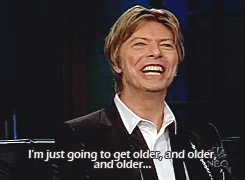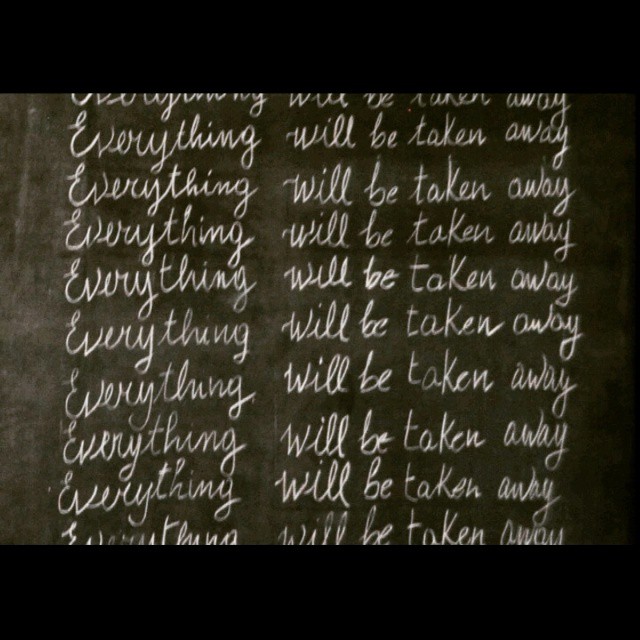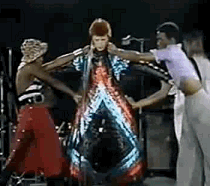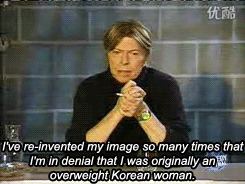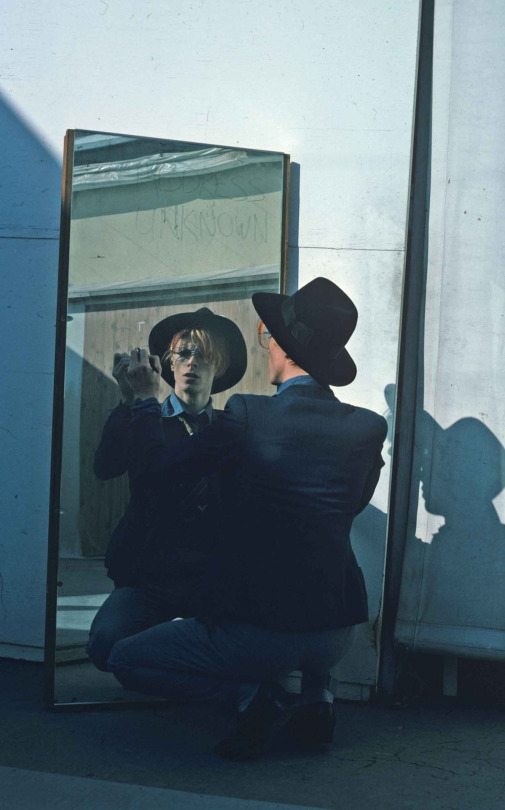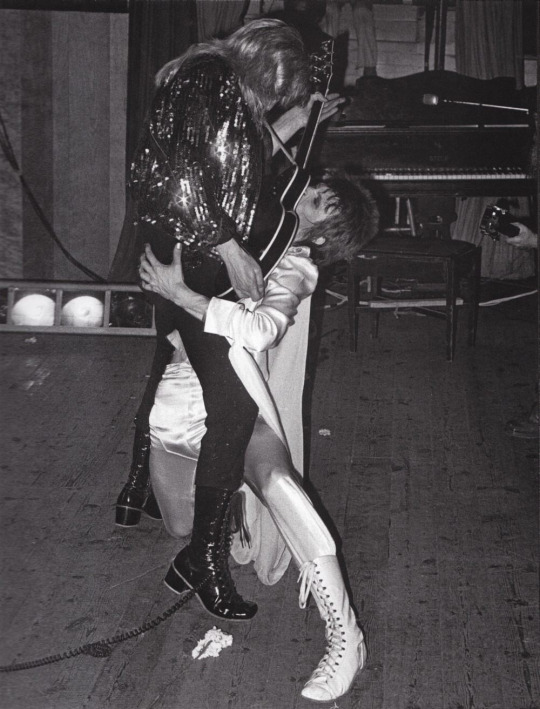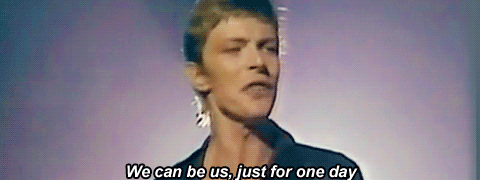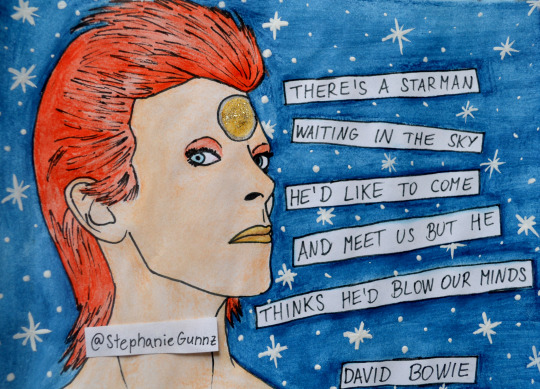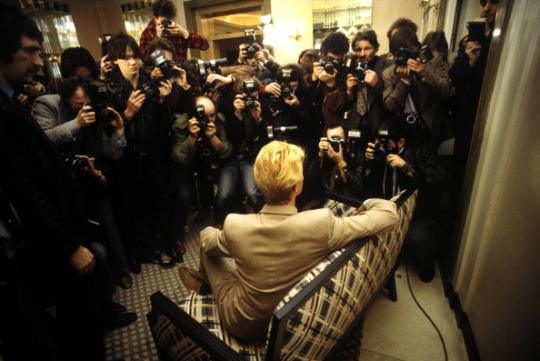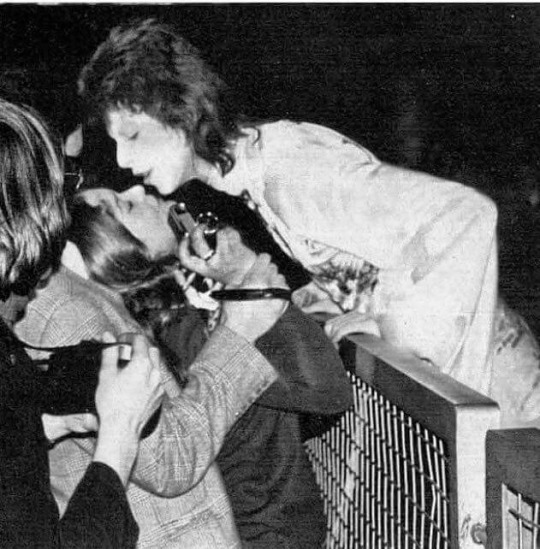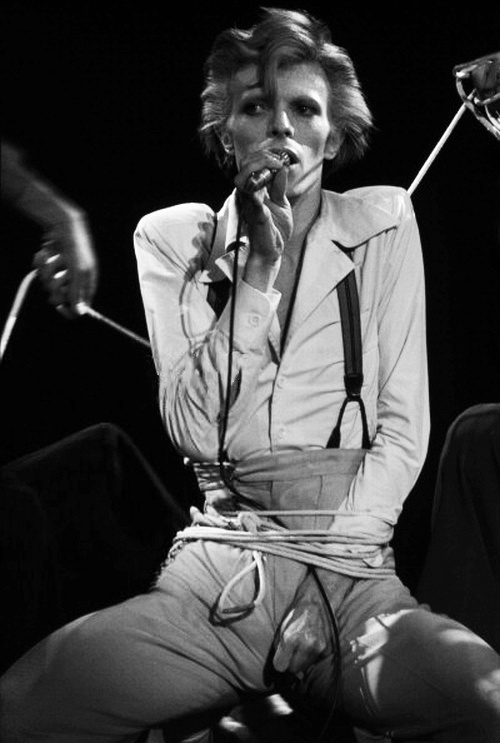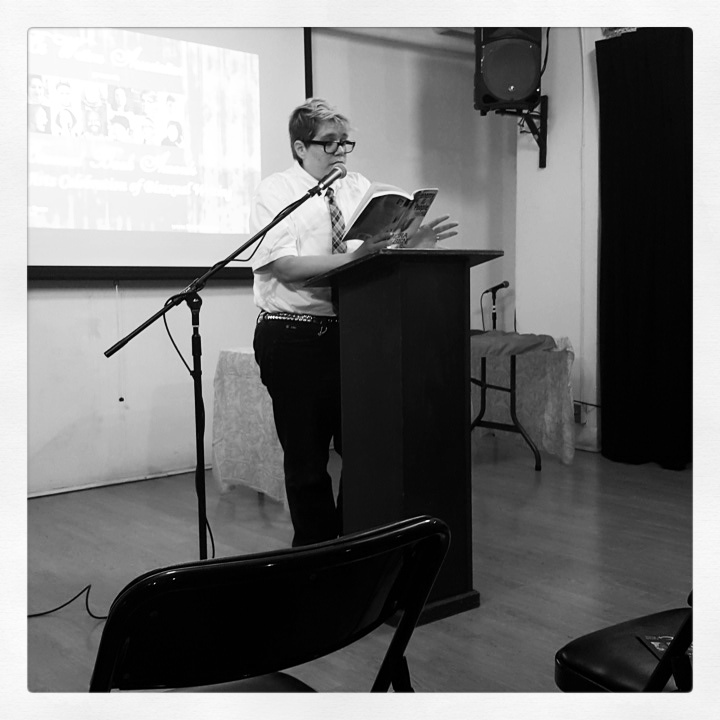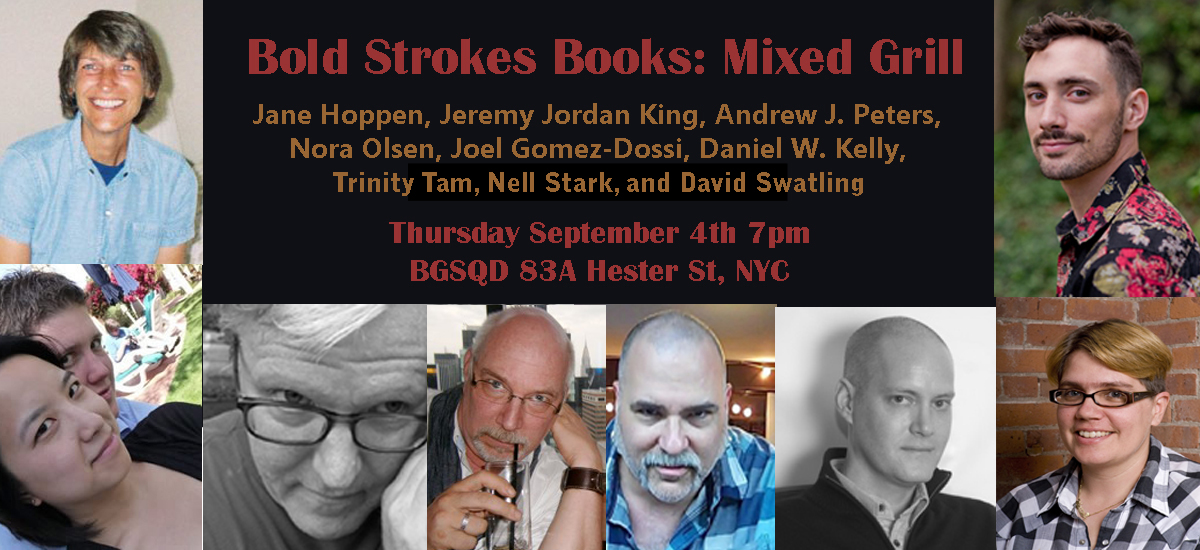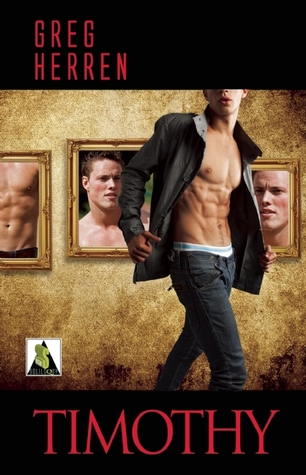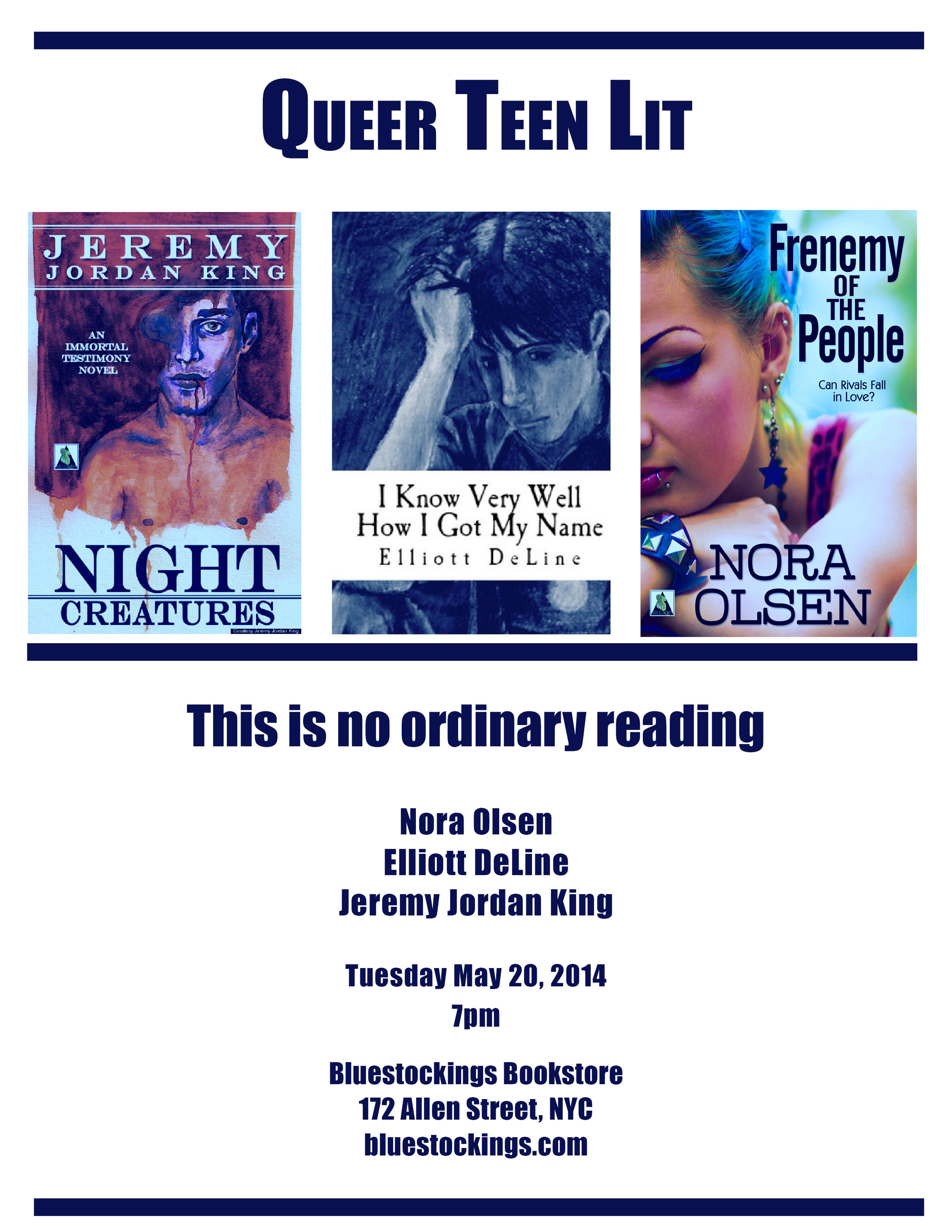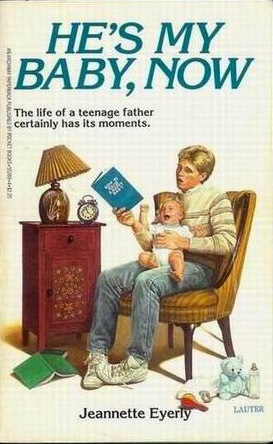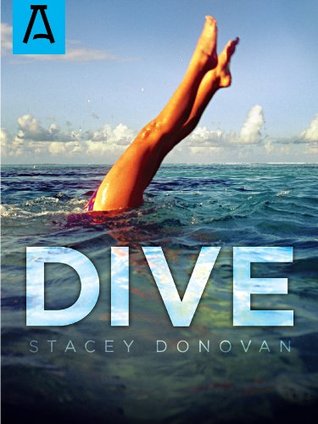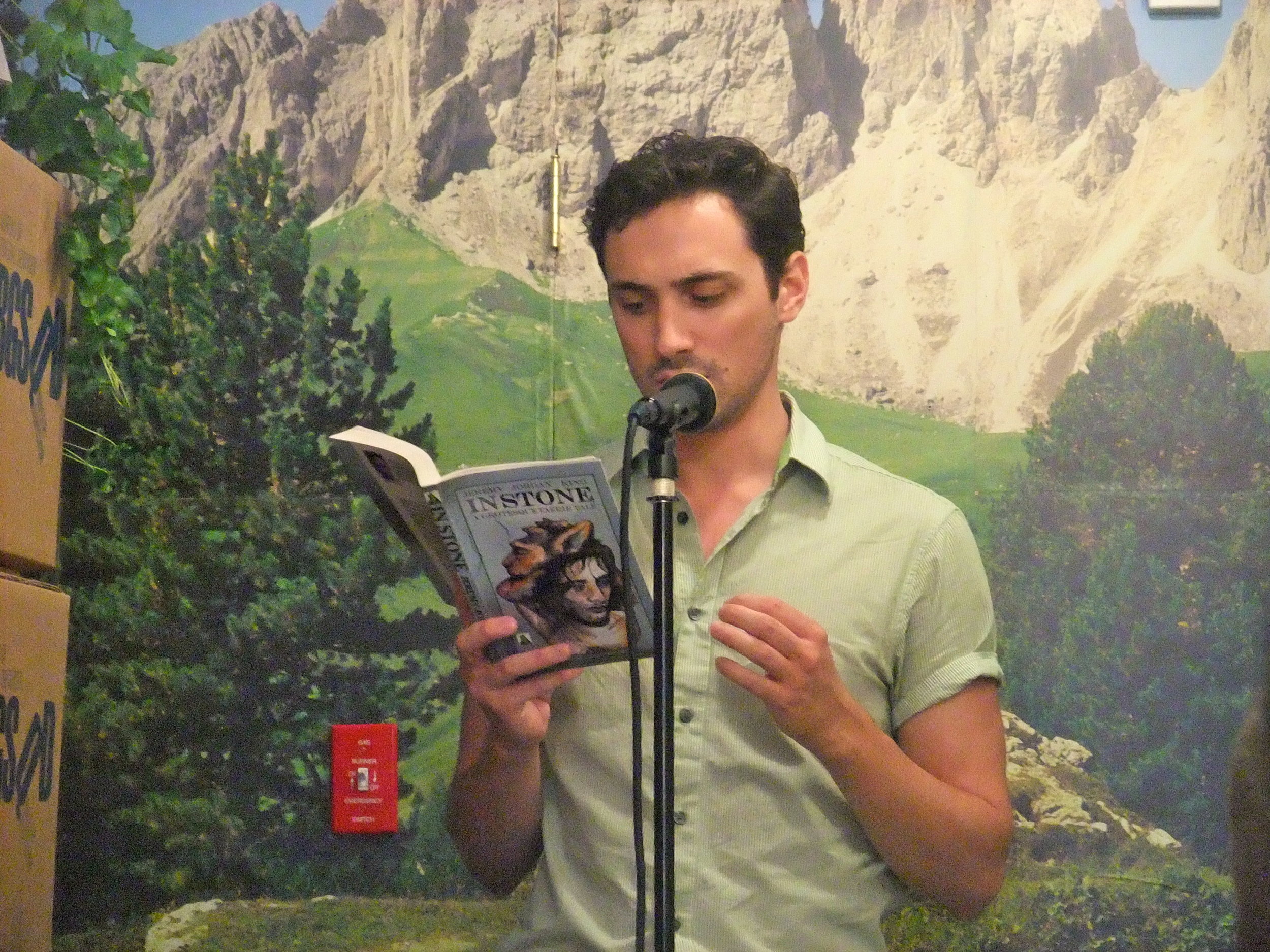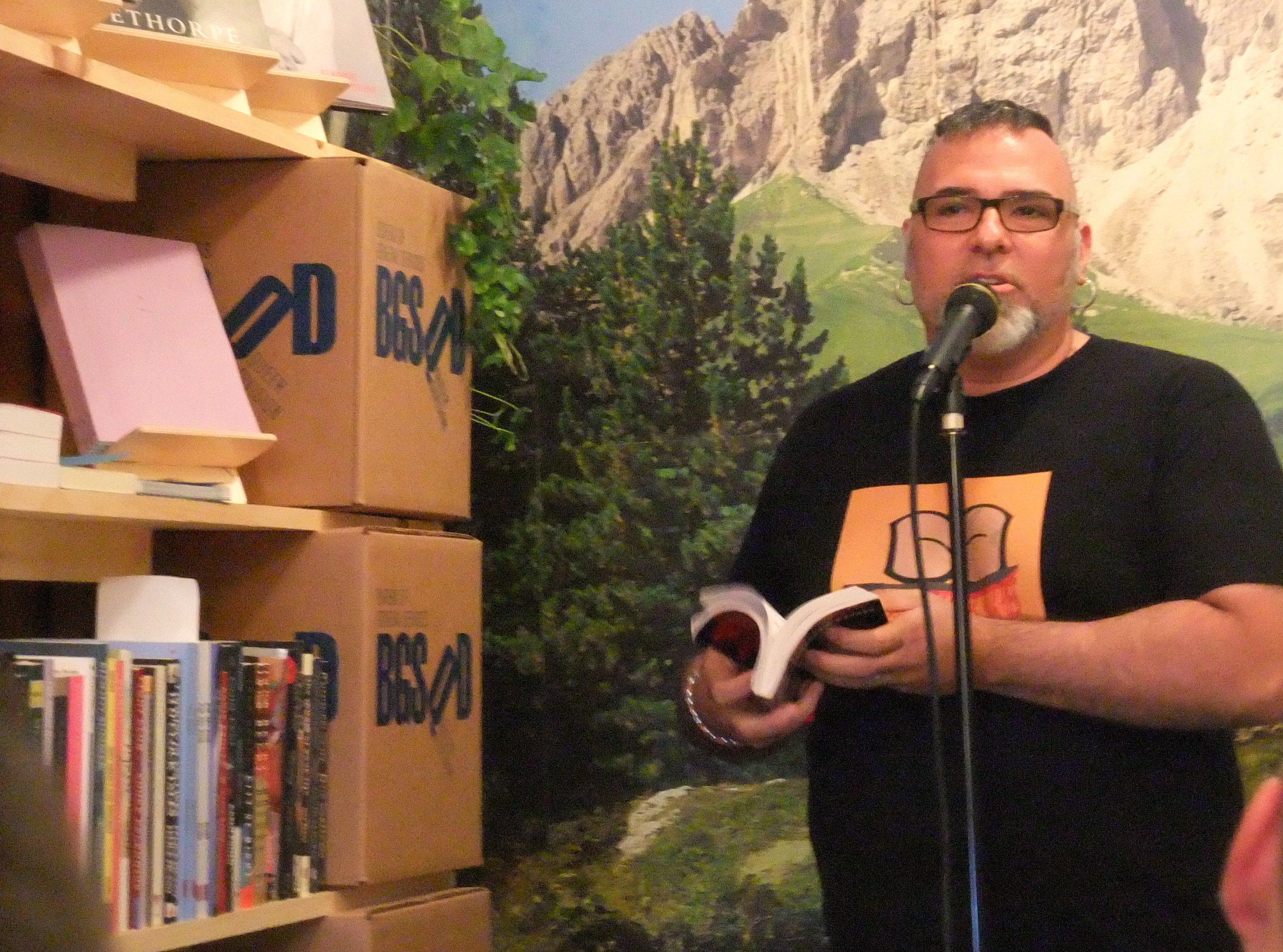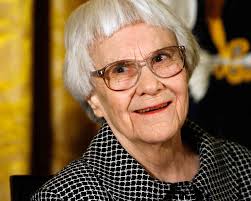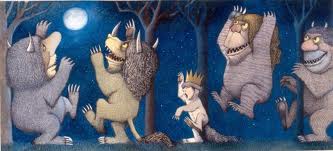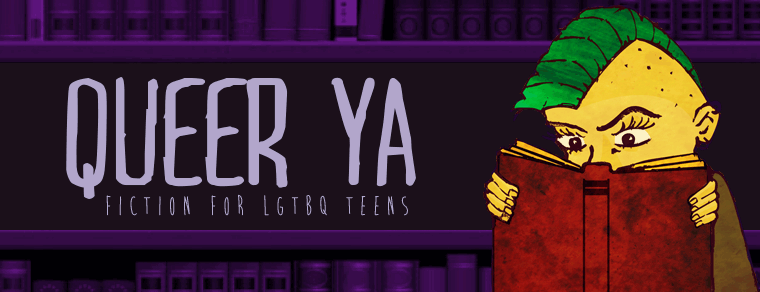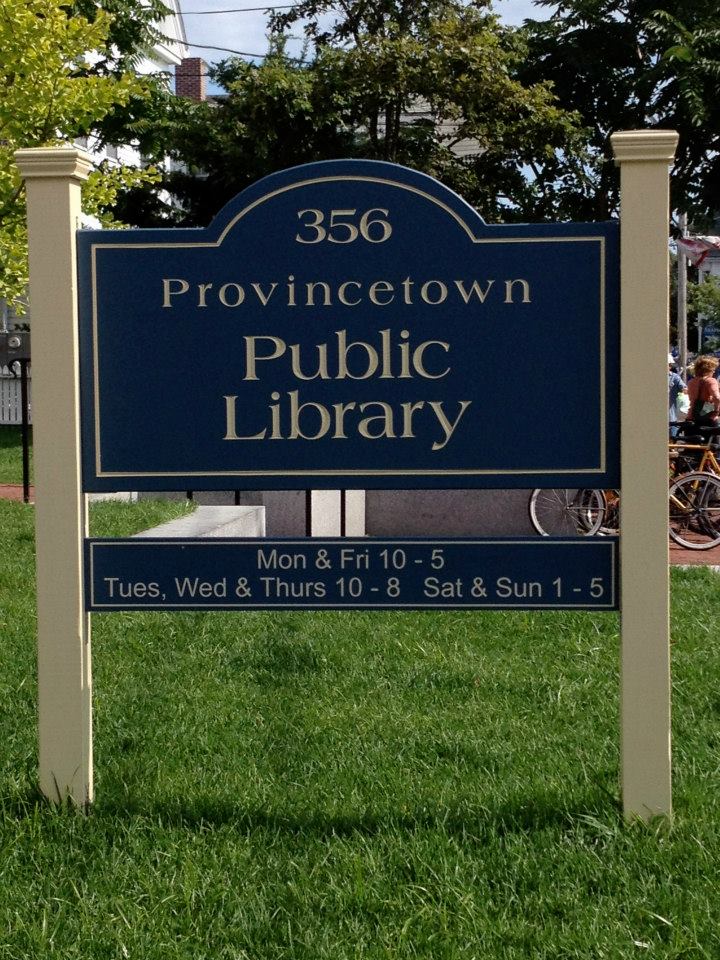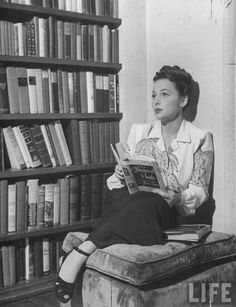 I am a great admirer of Olivia de Havilland. My brother and I were talking about her and he mentioned that she was 97 years old. I looked her up and discovered she is actually 100! Her advanced age threw me into some sort of panic and I decided that I wanted to watch a few of her movies and review them here to show my appreciation for her.
I am a great admirer of Olivia de Havilland. My brother and I were talking about her and he mentioned that she was 97 years old. I looked her up and discovered she is actually 100! Her advanced age threw me into some sort of panic and I decided that I wanted to watch a few of her movies and review them here to show my appreciation for her.
If you have had the bad luck to go through your life without knowing who Olivia de Havilland is, all that will change now as you discover that she is a legendary film actor who attained great fame during the golden age of Hollywood movies. She is versatile and beautiful. When I was a young teenager I didn’t recognize that she was the same actor from movie to movie, because she was so different in each one. But I guess there’s a certain lit-from-within quality to all her roles.
I was sitting in my friends Jen and Damian’s kitchen/living room, telling Jen about my Olivia de Havilland project. Suddenly the door to the next room opened and two bright eyes peeked out through the crack. “Did you say Olivia de Havilland? I love her!” It was their roommate Anna, who revealed herself to be a foaming fan. She spoke so charmingly and enthusiastically about her screen idol that I knew I had to video her for this blog post. (Plus, I know people don’t really like reading things but they do like watching videos.)
[youtube https://www.youtube.com/watch?v=EoTUBHZEpRg&w=560&h=315]
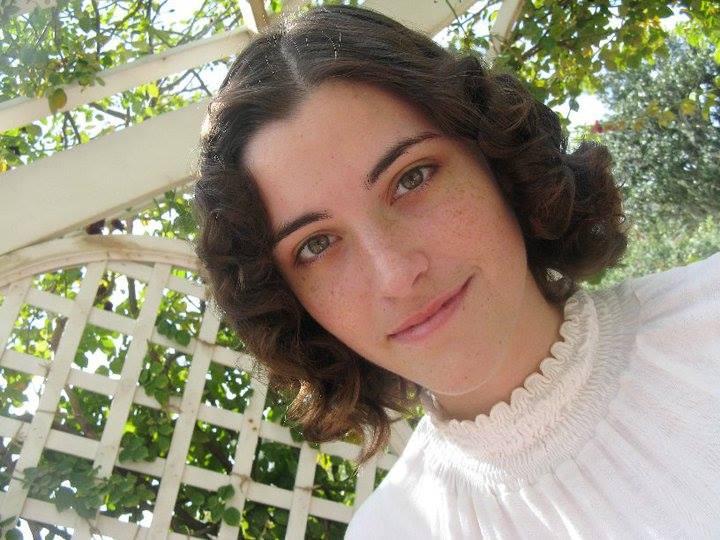
In the interview, Anna mentioned her time-consuming recreations of Olivia de Havilland/Myrna Loy hairstyles, and I begged her for a photo.
Now I will tell you about the movies I watched.
The Male Animal (1942)
Henry Fonda is a professor with his head in the clouds who unwittingly steps into a battle with university authorities who threaten and censor him. He also tries to give his lovely, long-suffering wife Olivia de Havilland away to another man she seems to like better.
This movie is very relevant for our current political climate, except the right wing buffoons in this movie are just loveable guys like Eugene Pallette, who like to take their pants off and wrestle. (Pallette and de Havilland are reunited here from Robin Hood, in which he plays Friar Tuck.) I’ve been curious about Pallette since I saw him in The Lady Eve; he’s such a wonderful character actor. Trivia fact: he was a racist right-wing buffoon in real life too and he built an enormous bunker/compound in which to hide from atomic warfare. But after only two years of waiting for the Russian bombs to fall, he returned to Hollywood where he did not do any more work in pictures and died of throat cancer when he was only 65.
De Havilland is marvelous as the voice of sanity in this movie. The Henry Fonda character is just like me; when he thinks he’s going to break up with his wife, the first thing he worries about is who is going to get what book from the bookshelves. The marital problems they endure are funny and realistic and basically seem like they can’t be solved because it’s 1942.
This is at least the third movie I’ve seen where Hattie McDaniel plays Olivia de Havilland’s servant. McDaniel brings so much dignity and humor to these crummy parts.
In This Our Life (1942)
I had seen this once before but forgotten all about it until I watched it again. Then I had a false memory I’d seen it in the theater, but apparently it was with my mother and brother in the same room as this time. Anyway, Olivia de Havilland (playing Roy) and Bette Davis (playing Stanley) are two sisters, one good and one bad. Stanley runs off with Roy’s husband and then drives him to suicide, oops! My wife watched the first few minutes of this with me, and when she heard later that the husband committed suicide, she commented, “I would too. Ugh, that Bette Davis!” (In real life, though, I don’t think you can drive someone to suicide just because you like to listen to records and buy nice things.) One edgy thing about this movie is the flirtatious relationship between Stanley and her uncle William (played by Charles Coburn, another great character actor from The Lady Eve. Apparently Charles Coburn was also a right-wing extreme racist bigot but he lived to a ripe old age.)
When Stanley kills a little girl in a drunk driving hit-and-run, she pins the crime on an African-American law clerk (Ernest Anderson) who is the son of their servant (Hattie McDaniel.) The police are quick to believe Stanley’s story and pay no heed to the words of the clerk and his mother. (Hattie McDaniel’s character: “He tried to tell them, but they don’t listen to no colored boy.”) This is presented very matter-of-factly because it wasn’t necessary to convince the audience that prejudice existed, only that prejudice was wrong. Today we all superficially believe that prejudice is wrong, but now deny that is exists. I won’t spoil what happens at the very end, but do you really think Stanley can get away with such wickedness without paying the ultimate price? Obviously Bette Davis’ role is more fun, but Olivia de Havilland is the absolute best at playing a good sister.
Dark Mirror (1946)
I saw this movie once before, around 2000 or even earlier, in my brother’s bedroom with my brother and mother. His bedroom and my bedroom were later transformed back into a living room via a process of bookshelf removal. So when my brother and I watched this movie again, we were actually watching it in the same room as the first time, even though everything has changed.
In an acting tour de force, Olivia plays identical twin sisters, one good one bad. The police know one of the twins is a murderer, but they don’t know which. So psychologist Lew Ayers steps in to analyze them. As soon as he gives them some ink blot tests and word association games, he sees that Terri is a lunatic! But he falls in love with Ruth and asks her out. (Bad idea!) There’s some fun identity switching and gaslighting in this movie. In the end, Ruth is strangely unmoved by the fact that her twin will be sent to the electric chair.
Devotion (1946)
A weird biopic of the Bronte sisters. It’s very harsh toward Anne Bronte—the opening says something like, “Four talented siblings... two of them had genius.” Anne also barely appears in the second half of the movie, but that’s because in real life she was actually dead by the time these events took place. I guess Hollywood felt her death would be too much of a downer so they left it out. (Anne was played by Nancy Coleman, who I’ve never seen before as far as I know.) I was also a bit surprised by the incestuous vibe between Branwell and Anne.
In this reworking of reality, Charlotte and Emily both fall in love with the same man. It’s a hackneyed way to solve the age-old question of how the Brontes could have written these torrid romantic novels when they lived such quiet lives walled up in a Yorkshire parsonage; were their books based on real experiences or did they make them up? (Duh, a little of both! Hasn’t anyone who’s examined this question ever written a novel, or been in love? Why can’t people ever let the answer to anything be “both”?)
Of course one of the sisters has to be saintly (Emily) and the other selfish and conniving (Charlotte.) Olivia de Havilland is usually cast as the good sister, so I enjoyed her being bad Charlotte, even though I don’t think it’s an accurate portrayal. De Havilland’s role is bigger, so I was puzzled that Ida Lupino got top billing as Emily. Later I learned that this was when de Havilland had sued Warner Brothers to be released from her contract, so as revenge they demoted her in the credits of this movie. Paul Heinreid plays Arthur Nicholls, with some kind of weak explanation for why this Irish curate has a Viennese accent. In this film, M. Heger (Victor Francen) has no charm at all and it’s impossible to understand why Charlotte would go for him.
I watched this one with my friend Rebecca, who is a poet. When the aunt tells Emily and Charlotte, “You’ll never get married writing poetry all the time,” Rebecca commented without rancor, “It’s true.” There was a juicy small part for Dame May Whitty, and Sidney Greenstreet plays Thackeray. Charlotte Bronte really did meet Thackeray when she went to London, but she was a shy wallflower rather than confident and socially brilliant as in the movie.
Branwell and Emily both die of “movie disease,” very swiftly and beautifully. In the final scene, Charlotte is on top of a promontory and promises to Emily’s spirit that she will have a heart, and then the camera pulls back and you see she is on a grassy tuft only about four feet off the ground, with Niccolls waiting at the bottom—what is she doing there?
The Snake Pit (1948)
One of De Havilland’s most highly regarded pictures. Her portrayal of a woman with mental illness getting electroshock treatments in a mental institution is sensitive and good-natured. Celeste Holm has a nice supporting role as her friend in the bin. This was the only one of these movies that my wife was willing to watch, and she liked it. She found the part at the end where the patients are singing to be very moving. I felt this movie was everything I was promised it would be.
The Heiress (1949)
This is one story that I feel extremely familiar with. I’ve read the Henry James novella Washington Square, seen this movie before, seen the remake, seen the revival of the stage play, and also the best version of all, Carol Burnett’s spoof “The Lady Heir.” (Which has been taken off YouTube, sorry. I also can't use any of the screen shots I took from these movies because they turned into checkerboard squares on account of copyright infringement. I'm so sorry about everything.)
Catherine Sloper (Olivia) is a shy, awkward, cringing young woman whose father doesn’t like or appreciate her. She can make witty jokes to her aunt at home, but in company Catherine is frozen and monosyllabic. Morris (Montgomery Clift) is the handsome penniless young man who’s after her fortune. Part of the delicious tension in the movie is that the viewer knows Catherine’s father is right in thinking that Montgomery Clift is an unscrupulous bounder. It’s right for Dr. Sloper to protect his daughter from him. But the father is so mean, you can’t root for him. And Montgomery Clift is so handsome and captivating, you want him and Catherine to get married even though he doesn’t really love her, only her money. Maybe he will be nicer to her than her father is. I think Morris is trying too hard when he tells Dr. Sloper that he is an “attractive father” and that offers to share his scent with him. Dr. Sloper is played by Sir Ralph Richardson (O Lucky Man!, Time Bandits, Dr. Zhivago, The Fallen Idol, Greystoke, etc.) (Spoilers ahead!)
I hadn’t seen this movie in quite a few years, and because I’ve changed, my attitude toward the film has changed. I still think it’s one of the G.O.A.T. movies, but I see it differently now. Catherine never forgives her father for his treatment of her and she refuses to see him on his deathbed. Before, I basically felt that he got what he had coming to him. Now I see this non-scene as the tragic touchstone of the story. I told my brother I had been tossing and turning all night after we watched The Heiress, and he said so had he. Catherine and her father had one chance to make up and be at peace with each other and they totally blew it. (Also, I don’t think even a century ago you could make a self-diagnosis of imminent death using a stethoscope alone.) (Also, it is very moving how they lay straw out on the street so that the noises of the carriages won’t disturb the dying man. But I don’t think they lay down enough straw; I think he could still hear the noise. When I die in post-apocalyptic horse-drawn carriage New York, I want them to absolutely blanket my intersection plus a few blocks in every direction.)
The one big difference between the novella and the movie is that in the novella, Catherine’s father disinherits because she is too proud to tell him that Morris has dumped her. But in the movie, he talks about writing her out of his will and she eggs him on, but in the end he doesn’t do it. So when Morris comes crawling back, years later, he’s not after a diminished fortune but the same thing he was after the first time. I wonder if this change was meant to make Morris look better or Dr. Sloper. I had forgotten that Catherine gives Morris some ruby cuff links when he returns, so he actually doesn’t make out that badly. When I was younger, it seemed like Catherine served Morris up the ultimate humiliation! But now I feel like, while cinematic and very exciting, what happens to him probably doesn’t feel that bad to a hardened louse like him. Who knows, maybe he’ll be back the next day? Also, Catherine had no option just to light into Morris and tell him exactly what she thinks of him, and then maybe punch him right in the snotbox. A perfect lady has to take her revenge in a passive-aggressive, mendacious way.
Finally, the last time I saw this movie I was overcome with sadness at how Catherine is condemned to live out her days broken-hearted and alone in that sumptuous house without even needlepoint to console her. But now it strikes me that she is still young, and very rich, and she has more poise and life experience than she did before. What is to stop her from going out and meeting people and perhaps falling in love again, this time with someone who actually likes her back? Or at least doing needlepoint or taking up some other hobby or interests if she feels like it? In fact, everyone is rejected and humiliated and unloved at some point in life, and her story is actually not that unique, although grippingly portrayed by a consummate actor.
My brother told me (unsolicited; I did not bring this up) that he felt the same way about The Heiress. Then when I discussed it with Anna, we had a very comical moment that didn’t make it into the video. (This segment of the interview failed to record—twice—so it really was not meant to be.) She was taken aback and wholly unconvinced by the idea that Catherine Sloper has her whole life ahead of her and all is not doomed. It also became apparent that I think Catherine Sloper is about 25 and Anna thinks she’s much older.
So I guess age actually makes a person more optimistic about certain things? Or at least makes it hard to take a certain kind of youthful misery very seriously? But there’s another way to look at it. Anna put it down to “trust”—and this part really did make it into the video, about ten minutes in. Anna believes that Catherine Sloper will never be able to trust again after the way she’s been betrayed. I realize that I’m actually still, even now, a very trusting person—I think I can usually tell who is trustworthy, and I go around trusting people all over the place. They can trust me, so why shouldn’t I trust them? So either that’s just very nice for me, aren’t I lucky? Or my rude awakening is still to come! And then finally I’ll be truly sophisticated/blasé/inconsolable/doomed. Time will tell.
Hold Back the Dawn (1941)
The first time I saw this movie was with my mother at the Watergate Hotel, just because it was on TV. The only part I really remembered, aside from how handsome Charles Boyer is, was when one of the characters goes to give birth in the US Embassy so her child will be a US citizen. This film is also extremely timely, as it covers the struggle immigrants face at the Mexican border. However, none of the aspiring immigrant characters are Mexican. They all hail from war-torn Europe. (Victor Francen, who played such an unappealing M. Heger in Devotion, appears here as an intellectual refugee.)
Charles Boyer is an enchanting Romanian bounder who makes his living sponging off of rich women, a serially kept man. Now he wants to enter the US, so he sets his sight on marrying a US citizen. He quickly meets adorably naive school teacher Olivia de Havilland, and they marry within 24 hours. I would marry Charles Boyer instantaneously too if that was the only way I could get my hands on him, so this seemed believable to me. His irresistibility is stark realism. In a way the plot is very similar to The Heiress. The tale is told from Boyer’s point of view, and the audience is rooting the whole time for him to get away with it and charm his way over the border. If a movie like this were made today, the character would have to be tiresomely hard-working and noble before the viewers would be allowed to sympathize with him. A movie like this really highlights how prejudice against immigrants has increased.
Charles Boyer’s character isn’t all bad, so naturally he doesn’t want to actually deflower his bride. But Olivia de Havilland is just so nice and pretty that what can he do? It’s the “Convenient Marriage” trope. Of course American sweetness conquers jaded European cynicism, but just as Charles Boyer is falling in love with her, Olivia de Havilland discovers she’s being used and takes off. Fortunately, it is incredibly easy to break through the border (all you have to do is not stop when they ask you to stop) and there’s a very kind immigration agent (played by Walter Abel whom you will recognize from Mr. Skeffington) who helps the star-crossed couple reunite in the USA.
My Cousin Rachel (1952)
Olivia was nominated for a Golden Globe but not an Oscar for this picture. I don’t think this is one of her best known movies but I was gagging to see it because Daphne du Maurier, who wrote the book the film was based on, is one of my favorite writers. The beautiful but sinister and scheming “older” woman (“she must be 35,” says her jealous rival) is an absolutely fabulous part, and Olivia de Havilland was perfect for it. The whole way through the film it is unclear if the title character Rachel is an evil murderess or if she’s simply somewhat manipulative and grasping in a perfectly reasonable way. “My beautiful torment,” the main character (Richard Burton) calls her. In one terrific sequence, Rachel seduces and then repudiates this young main character.
My wife Áine wandered in just in time for the climactic final scene, but when I asked her who she thought wrote the story, she knew it was du Maurier because it’s SO HER. As with The Heiress, I thought, this main character is only 25 years old. I think he will be able to get over Rachel and meet someone else if he wants to. Apparently to really capture my sympathies now, the protagonist has to be middle-aged. I think basically at this point in my life I am more interested in the problems of middle-aged people than I am in the love stories of very young people. (That’s probably a very damning thing to admit in my YA writer blog, but no one’s going to read this far anyway so it’s okay.) I read there is a new film version of My Cousin Rachel in the offing, which I look forward to.
The Adventures of Robin Hood (1938)
I initially had no interest in watching Robin Hood, but I was swayed by Anna’s rapturous description of it, and I’m so glad I changed my mind. This movie is a whale of a good time. The acting, accents, swordfighting, costumes, archery, vine-climbing, music, and even the laughing are ridiculously over the top and delightful. There’s an all-star supporting cast including Claude Rains and Basil Rathbone. This was my first introduction to the pulchritude that is Errol Flynn. De Havilland’s part is negligible, as all she has to do is look fetching in different headgear, but she more than makes the most of it.
After I watched Robin Hood, I realized that I had to make my “round up” of de Havilland’s movies a two-parter so that I could watch more of the Olivia-Errol movies, and just in general not do a rush job like I always do. I’m a little worried that Olivia de Havilland will die on me before I get to the second part. But, you know, I’m always thinking, “I have to do xyz before so-and-so dies.” I think it’s time for me to begin just observing that I am having that thought rather than actually acting on it. It’s not up to me who dies when, and no amount of magical thinking is going to give me control in this area. So I am looking forward to watching the Errol Flynn movies as well as To Each His Own, Lady in the Cage, It’s Love I’m After, Hush Hush Sweet Charlotte, Light in the Piazza, and a made-for-TV Agatha Christie movie Murder Is Easy.
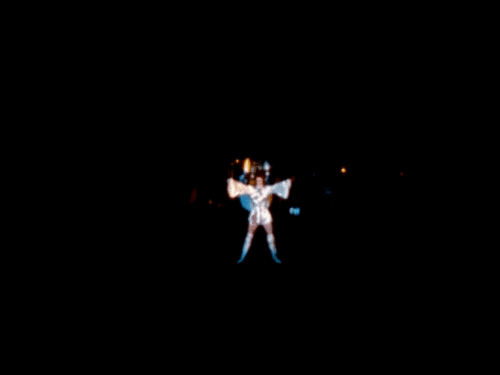 About two years ago I was walking home when I suddenly realized that David Bowie would die someday. I started crying. What I took away from this incident was the resolution that I should start taking testosterone because I believed that men and other people on T don’t often burst into tears in the middle of the street. I never did anything about taking testosterone though because it’s seemed too hard, and I didn’t do anything to try to reconcile myself to David Bowie’s impending death. We still had plenty of time, I thought.
About two years ago I was walking home when I suddenly realized that David Bowie would die someday. I started crying. What I took away from this incident was the resolution that I should start taking testosterone because I believed that men and other people on T don’t often burst into tears in the middle of the street. I never did anything about taking testosterone though because it’s seemed too hard, and I didn’t do anything to try to reconcile myself to David Bowie’s impending death. We still had plenty of time, I thought.